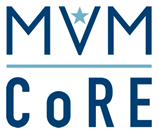Attention A T users. To access the menus on this page please perform the following steps.
1. Please switch auto forms mode to off.
2. Hit enter to expand a main menu option (Health, Benefits, etc).
3. To enter and activate the submenu links, hit the down arrow.
You will now be able to tab or arrow up or down through the submenu options to access/activate the submenu links.
Locator
Contact
Search
VA »
Health Care »
MIRECC / CoE
» Rocky Mountain MIRECC »
Rocky Mountain MIRECC - Lisa M. Betthauser, MBA
MIRECC / CoE
Rocky Mountain MIRECC - Lisa M. Betthauser, MBA

Updated: 20 July 2018
Biography
- Lisa M. Betthauser, MBA, PhD
 Title: Research Psychologist
Title: Research Psychologist- Contact information:
720-723-4867
lisa.betthauser@va.gov - Dr. Lisa M. Betthauser obtained a PhD in Clinical Psychology, with an emphasis in Health Psychology, from the University of Colorado, Denver. Prior to her doctorate, she earned a Master of Business Administration (MBA) in Health Administration from the University of Colorado, Denver, in 2006. She also holds a Certificate of Neuroscience from the University of Colorado, Boulder, completed in 2003. She completed a pre-doctoral internship at the Denver VA Medical Center, Eastern Colorado Health Care System in June 2016. Upon completion of her internship, Dr. Betthauser joined the staff of the Rocky Mountain MIRECC as a Research Psychologist. She is eligible for Cognitive Processing Therapy Provider status upon licensure.
- Research: Dr. Betthauser’s primary research interests include examining the impact of stress, resiliency, mild traumatic brain injury, and suicide on interpersonal relationships and health and well-being outcomes. In addition, she is interested in the acceptability and feasibility of complementary alternative medicine interventions for PTSD, traumatic brain injury and associated psychiatric outcomes such as suicide. Between 2007 and 2015, she was been involved in multiple projects with the Rocky Mountain MIRECC, initially as a research assistant, and moving into Co-Investigator and Principal Investigator roles. As a co-investigator on the QUERI Rapid Response Project, she contributed to the development of the uniform suicide nomenclature, with the generation of the Suicide and Self-Harm Classification System (SSHCS), prior to the current Self Directed Violent Classification System.
- Currently, she is a co-investigator on funded study exploring parental decision-making regarding return-to-play for student athletes with the University of Colorado, Physical Medicine and Rehabilitation Department. She is also involved in several studies examining TBI, PTSD and suicide in an Active Duty military population, as well as actively involved in a study exploring specific factors (e.g., military factors) impact on individual and community microbiota.
Recent Publications
- A Clinical Evidence-Based Approach to Examine the Effects of mTBI and PTSD Symptoms on ANAM Performance in Recently Deployed Active Duty Soldiers: Results From the Warrior Strong Study
- 9 March 2018 - Drs. Lisa Betthauser and Lisa Brenner participated in this publication in the Journal of Head Trauma Rehabilitation. The article looks to establish a baseline of how soldiers with mTBI and/or PTSD Symptoms perform a certain standardized test, the ANAM4. The study "results illustrate that a combination of mTBI and PTS is associated with worse ANAM4 performance than either condition alone." Read more
- Return to Top
- Betthauser LM, Bahraini N, Krengel MH, Brenner LA. Self-Report Measures to Identify Post Traumatic Stress Disorder and/or Mild Traumatic Brain Injury and Associated Symptoms in Military Veterans of Operation Enduring Freedom (OEF)/Operation Iraqi Freedom (OIF). Neuropsychol Rev. 2012 Feb 19.
- Individuals serving in Iraq and Afghanistan sustain injuries associated with physical and psychological trauma. Among such injuries, mild traumatic brain injury (mTBI) and post traumatic stress disorder (PTSD) are common. Self-report measures are frequently used to identify mTBI and/or PTSD and symptoms associated with these conditions. In addition to providing information regarding mTBI and PTSD, the goal of this literature review was to identify and present information on the psychometric properties of measures used to obtain information regarding these common conditions among Veterans who have returned from Operation Enduring Freedom (OEF)/Operation Iraqi Freedom (OIF). A comprehensive review of studies in which self-report measures were used to evaluate mTBI, PTSD, and associated symptoms among OEF/OIF Veterans is presented. Findings suggest that additional work is needed to identify psychometrically sound and clinically useful self-report measures that assess mTBI and PTSD and associated symptoms among OEF/OIF Veterans.
- Keywords: OEF/OIF/OND, PTSD, Traumatic Brain Injury (TBI)
- Return to Top
- Brenner, L. A., Betthauser, L.M., Homaifar, B. Y., Villarreal, E., Harwood, J. E., Staves, P. J., & Huggins, J. A. (2011). Posttraumatic stress disorder, traumatic brain injury, and suicide attempt history among Veterans receiving mental health services. Suicide & Life Threatening Behavior, 41, 416-423.
- History of posttraumatic stress disorder (PTSD) or traumatic brain injury (TBI) has been found to increase risk of suicidal behavior. The association between suicide attempt history among veterans with PTSD and/or TBI was explored. Cases (N = 81) and 2:1 matched controls (N = 160) were randomly selected from a Veterans Affairs Medical Center clinical database. PTSD history was associated with an increased risk for a suicide attempt (OR = 2.8; 95% CI: 1.5, 5.1). This increased risk was present for those with and without a history of TBI. Results support incorporating PTSD history when assessing suicide risk among veterans with and without TBI.
- Keywords: Suicide Prevention, PTSD, Traumatic Brain Injury (TBI)
- Return to Top
- Brenner, L.A., Breshears, R.E., Betthauser, L.M., Bellon, K. K., Holman, E., Harwood, J. E., Silverman, M. M., Huggins, J. & Nagamoto, H. T. (2011). Implementation of a suicide nomenclature within two VA healthcare settings. Journal of Clinical Psychology in Medical Settings.
- Implementation of a Suicide Nomenclature within Two VA Healthcare Settings Those who work in the field of Veteran’s care, as well as educators, researchers, and professionals providing direct mental health services agree that learning more about and preventing suicide represents a highly critical goal. Yet, up to now, researchers and mental health professionals lacked a shared language for defining suicidal behavior. This study discusses implementation of the Center for Disease Controls’ Self-Directed Violence Classification System (SDVCS) and an accompanying Clinical Tool (CT) at two VA healthcare facilities (in Denver and Grand Junction, CO). Results of this study show that implementing a more unified language is possible, while at the same time highlights some of the challenges and barriers to adoption of this system. This study provides important information regarding implementation of the SDVCS throughout the VA system.
- Keywords: Suicide Prevention
- Return to Top
- Gutierrez, P.M., Brenner, L.A., Olson-Madden, J.H., Breshears, R., Homaifar, B.Y., Betthauser, L.M., et al. (Staves, P. J., & Adler, L.E.) (2009). Consultation as a means of veteran suicide prevention. Professional Psychology: Research and Practice, Vol 40(6), 586-592.
- The development and implementation of a suicide consultation service being run by an interdisciplinary team in a metropolitan Veteran’s Administration (VA) medical center is described. This service is grounded in a collaborative theoretical framework. An overview of the consultation process and theoretical and empirical literature to support the framework used by the service are provided. Some of the interventions commonly recommended to referring clinicians to reduce client suicide risk are reviewed. Although there are many challenges to running a service such as this, the authors conclude that the model presented is flexible enough to be applied in a variety of settings.
- Keywords: Suicide Prevention, Evidence Based Treatment
- Return to Top
- Terrio, H. P., Nelson, L. A., Betthauser, L. M., Harwood, J. E., & Brenner, L.A. (2011). Postdeployment traumatic brain injury screening questions: Sensitivity, specificity, and predictive values in returning soldiers. Rehabilitation Psychology, 56(1), 26-31.
- OBJECTIVE: To evaluate the sensitivity, specificity, and predictive values of Post-Deployment Health Assessment traumatic brain injury (TBI) screening questions employed by the Department of Defense (DOD). Participants: Complete data was obtained from 3,072 soldiers upon return from a 15-month deployment to Iraq. METHOD: Comparisons were made between responses to the DOD four-item screener and a brief structured clinical interview for likely deployment-related TBI history. The interview process was facilitated using responses to the Warrior Administered Retrospective Casualty Assessment Tool (WARCAT). RESULTS: The sensitivity and specificity of the DOD screening tool (positive response to all four items) in comparison to the clinician-confirmed diagnosis was 60% and 96%, respectively. The sensitivity increased to 80%, with a slight decrease in specificity to 93%, for positive TBI screening when affirmative responses to questions 1 and 2 only were included. CONCLUSIONS: Affirmative responses to questions 1 and 2 of the DOD TBI screening tool demonstrated higher sensitivity for clinician-diagnosed deployment-related TBI. These two items perform better than positive responses to all four questions; the criteria presently being used for documentation and referral of a deployment-related TBI. These findings support further exploration of TBI screening and assessment procedures.
- Keywords: Traumatic Brain Injury (TBI), OEF/OIF/OND
- Return to Top


























